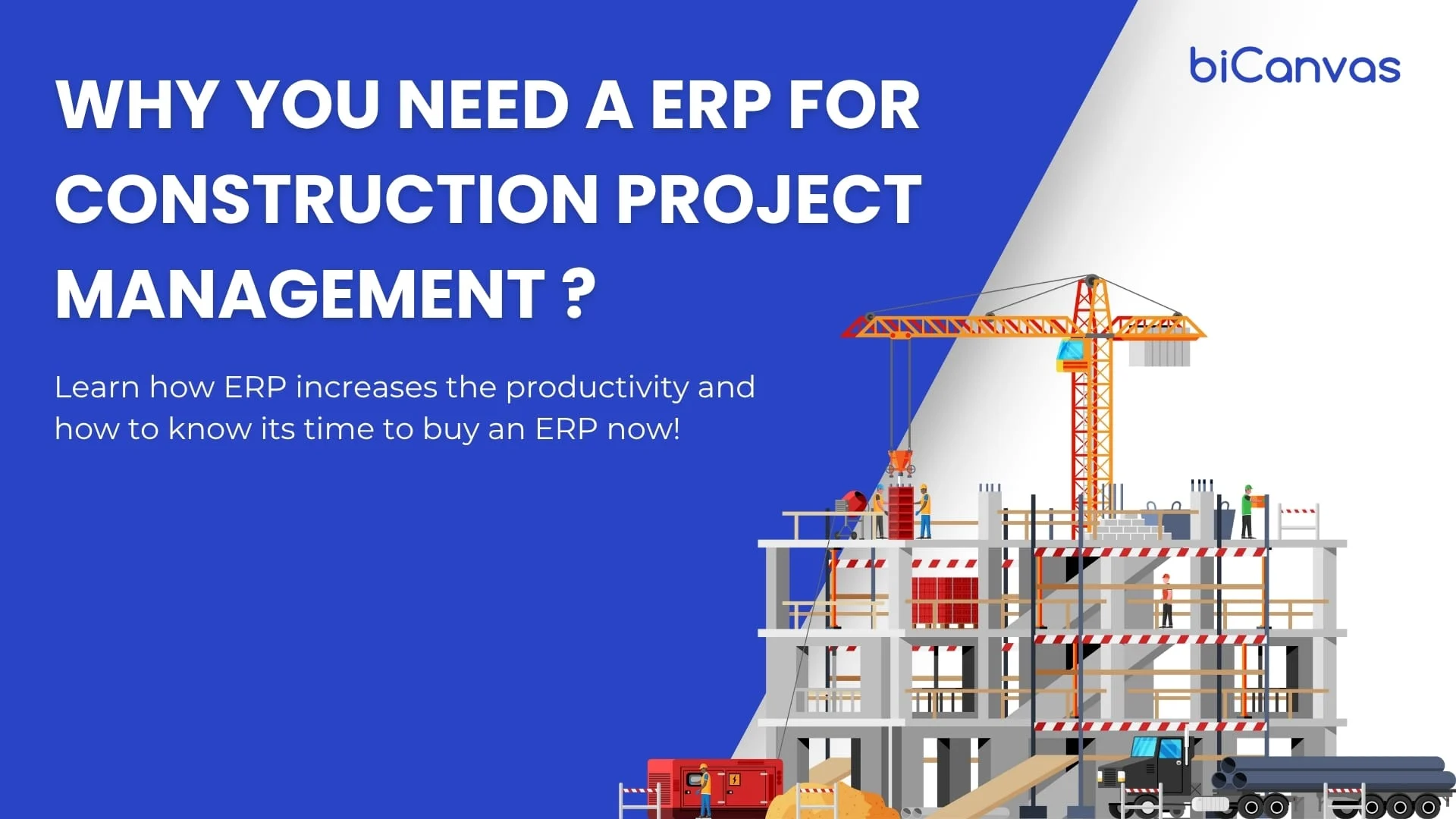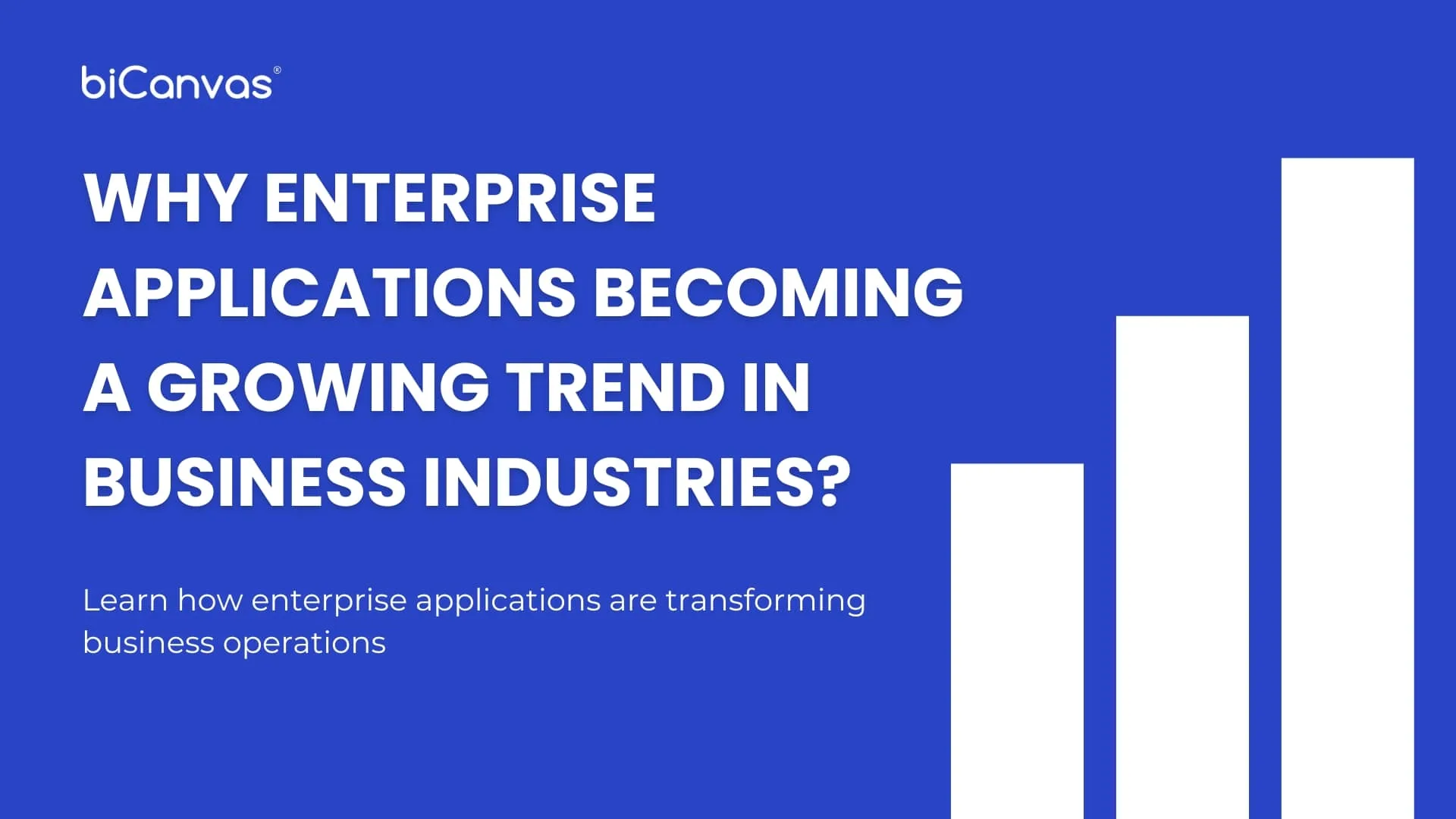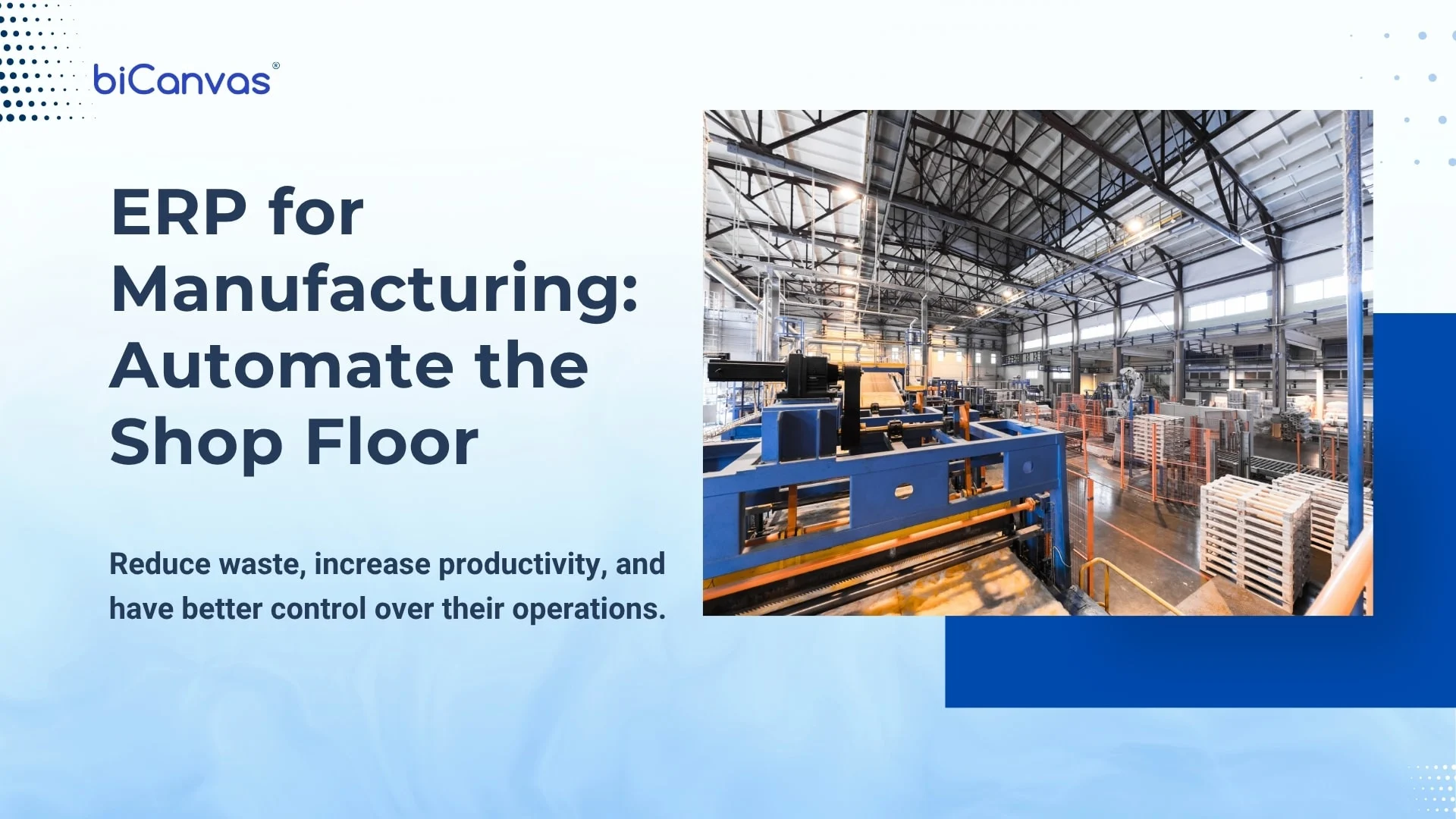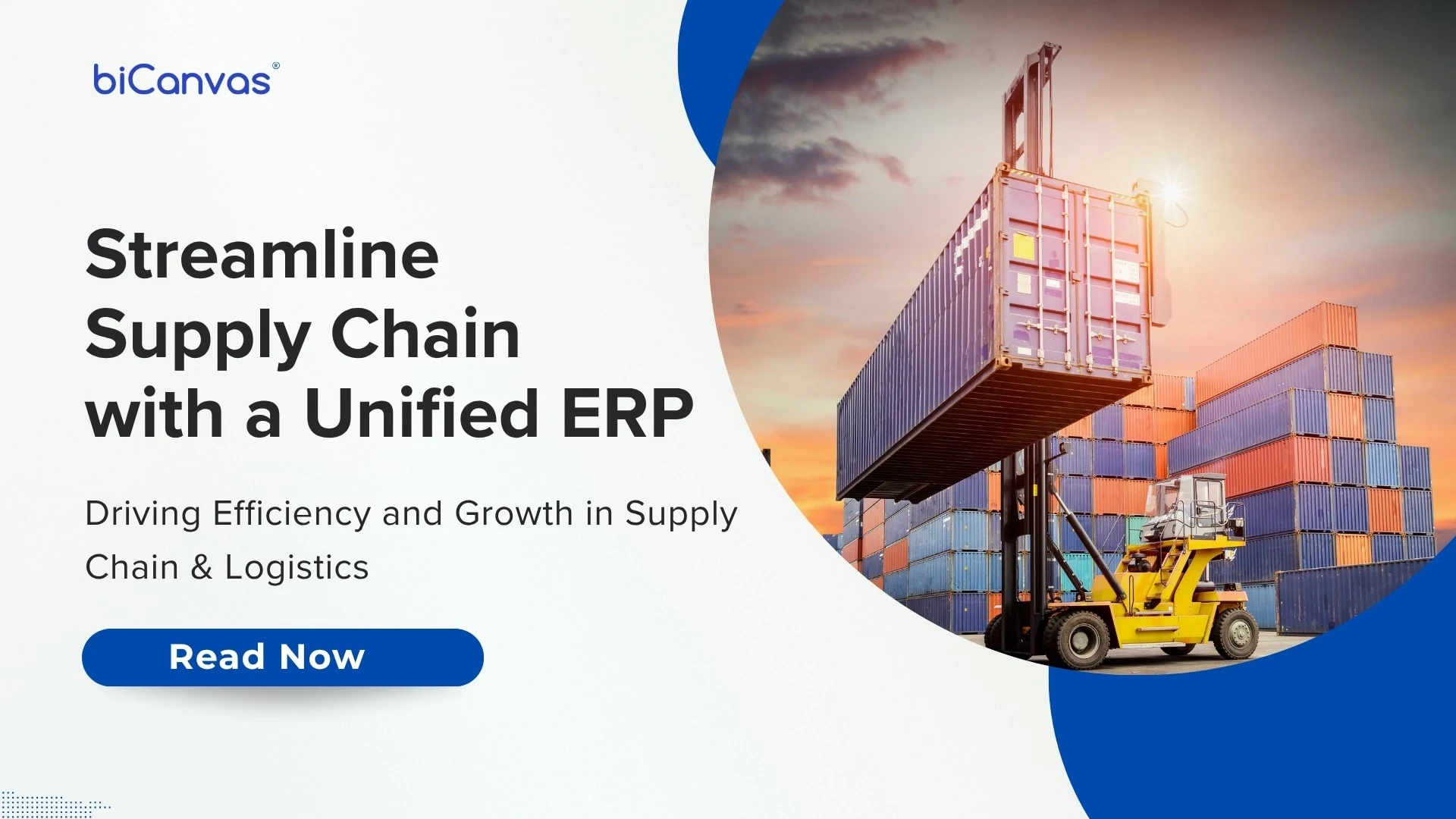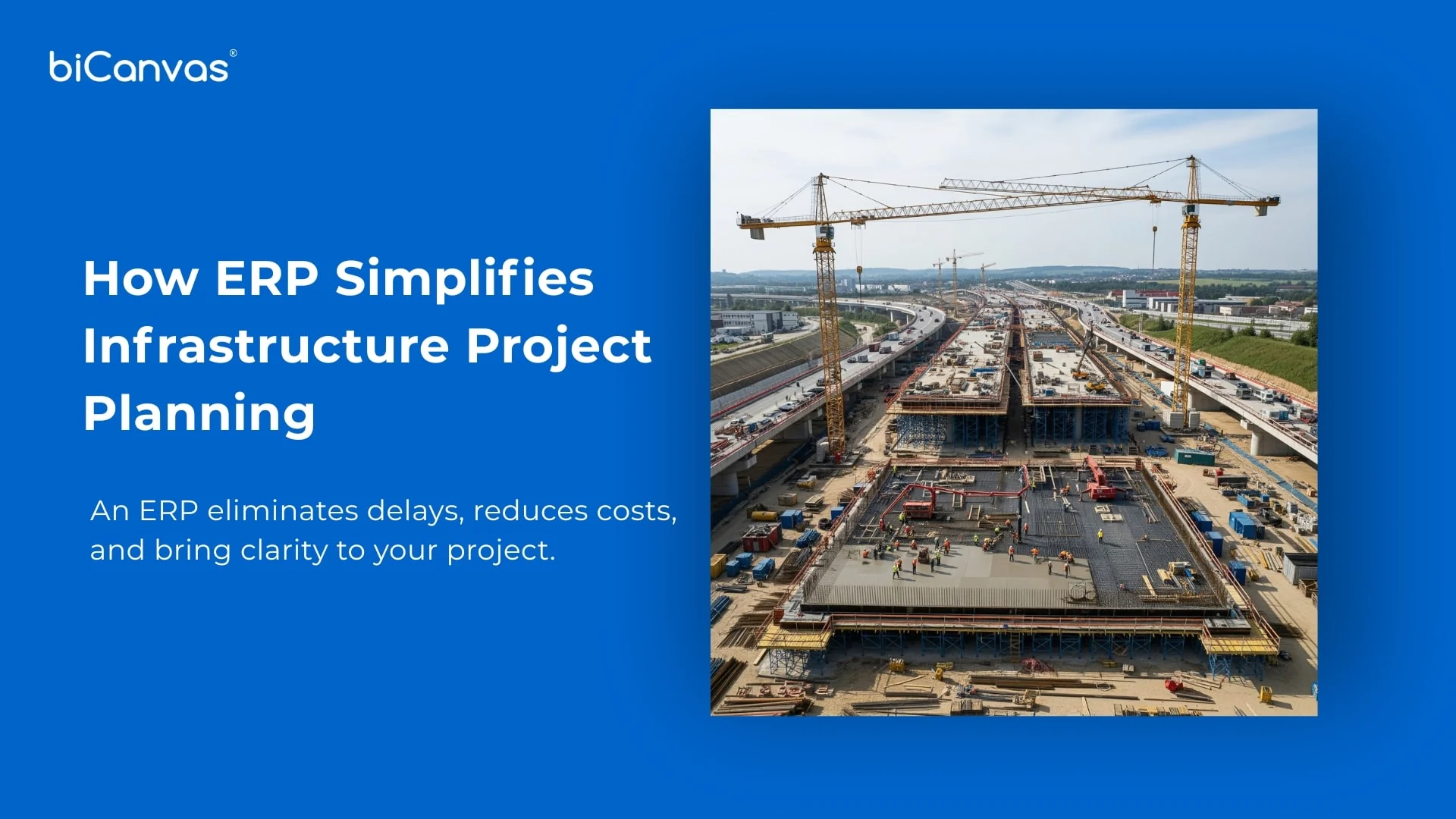From resource handling and team coordination to budgets and schedules, maintaining a successful building project requires precision and efficiency. However, without the proper tools, veteran managers can experience delays, overages, and communication failures. That's where ERP (Enterprise Resource Planning) software, such as biCanvas, is a total game-changer.
The Challenges of Construction Project Management
- Resource Management: Managing multiple projects at once can lead to uneven resource allocation. One site might have excess while another is waiting. Efficient distribution is critical.
- Project Budget Management: Cost overruns are common due to fluctuating material prices, labor rates, or overlooked expenses, pushing the project over budget.
- Timeline Pressure: Deadlines are crucial. Delays - caused by weather, personnel shortages, or materials - can lead to unhappy clients and extra costs. Rushing can lead to errors and safety concerns.
- Clear Communication: Miscommunication causes resource misalignment, wrong orders, material waste, and increased rework costs.
- Maintaining Transparency: Compliance with safety and legal regulations is essential. Non-compliance can cause fines or project shutdowns.
When managed manually or with disconnected tools, these challenges can escalate, jeopardizing project success.
How ERP Software Simplifies Construction Project Management
ERP software integrates all aspects of your construction business into one unified platform. Here's why investing in a solution like biCanvas is a smart decision for construction project management:
- Centralized Project Planning: biCanvas ERP keeps all project plans in one place. It helps create schedules, assign resources, and track progress.
- Real-Time Resource Tracking: Get live updates on materials, equipment, and workers. Prevent stock shortages or excess.
- Budget Management and Cost Control: Monitor expenses in real-time and address budget issues before they escalate.
- Enhanced Collaboration: All teams access real-time project data, reducing miscommunication and improving efficiency.
- Compliance and Reporting: Automates reporting and tracks safety audits and legal requirements, reducing documentation errors.
- Procurement Optimization: Automates material orders based on real-time needs to avoid overstock or delays.
- Mobile Accessibility: Accessible via mobile devices, allowing site managers to update tasks and issues instantly.
Benefits of ERP Software for Construction Project Management
- Improved productivity - Automate repetitive tasks and reduce manual errors.
- Much more transparent - Real-time data provides key insights for decision-makers.
- Better risk management - Spot and address issues before they grow.
- Greater profit - Optimized resources and reduced unnecessary spending.
- Scalability - Easily manage multiple projects of various sizes.
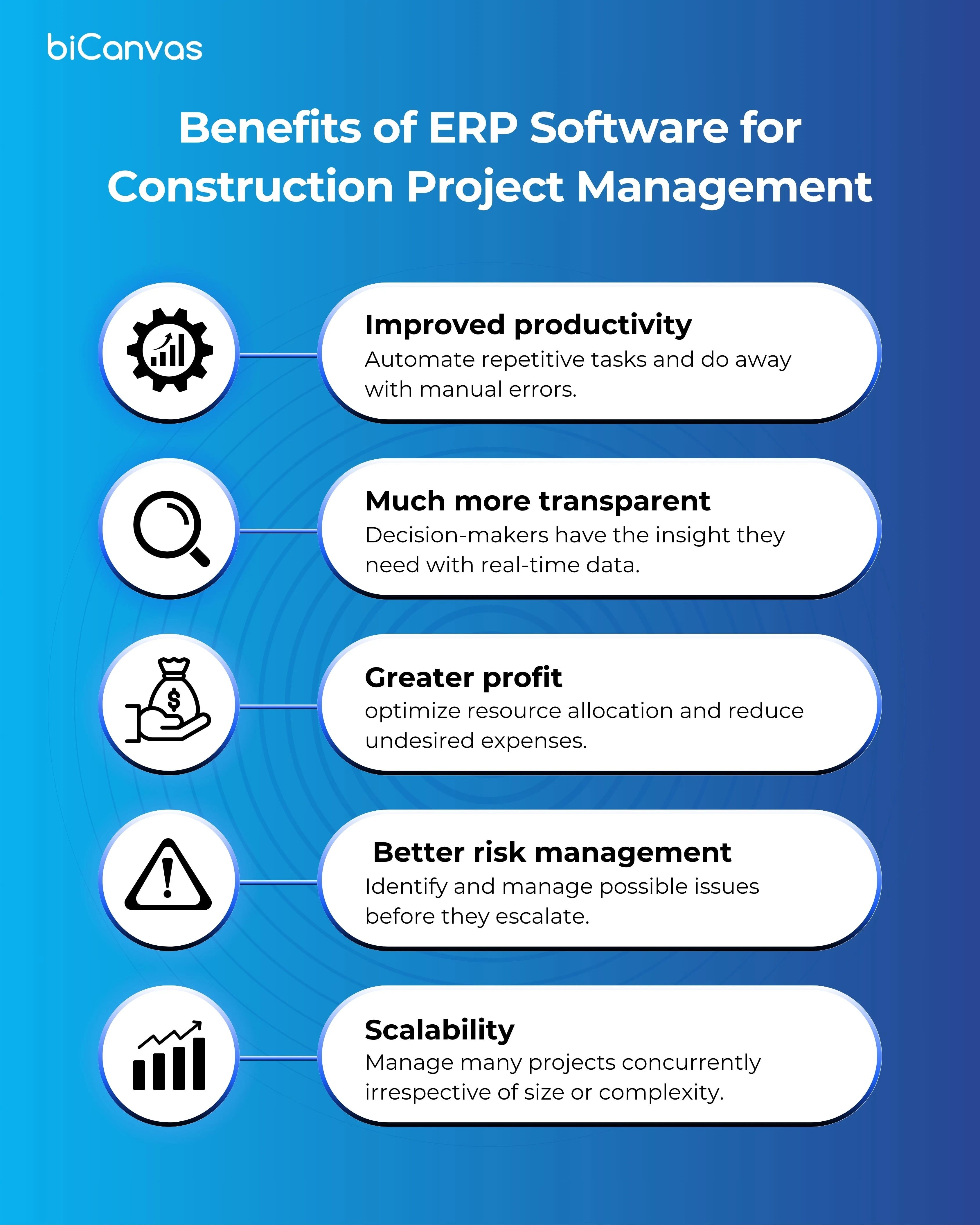
When to Consider ERP Software for a Construction Business?
When construction projects face delays, inventory mismanagement, or financial tracking challenges, an ERP becomes essential. It provides real-time stock control, streamlines procurement, and ensures cost efficiency. With improved team coordination, automated supplier management, and compliance tracking, operations run seamlessly. Upgrading to ERP modernizes processes, enhances scalability, and drives business growth.
Why biCanvas is the Perfect Choice for Your Business
biCanvas ERP effectively addresses top construction issues through data centralization, process automation, and increased real-time collaboration. It streamlines resource allocation, budget management, scheduling, communication, and compliance to enable smooth project implementation.
How biCanvas ERP Addresses These Challenges:
- Intelligent Resource Allocation: Monitors labor, equipment, and materials per project to avoid shortages or excessive use, allocating them evenly.
- Precise Budget Control: Tracks expenses in real-time, forecasts cost variations, and avoids overspending through automated financial monitoring.
- Effective Scheduling: Detects possible delays, synchronizes workforce availability, and streamlines workflows to maintain projects on schedule without sacrificing quality.
- Smooth Communication: Offers a single platform for real-time updates, task allocation, and document sharing, avoiding miscommunication hazards.
- Regulatory Compliance Tracking: Keeps current records, streamlines permit management, and adheres to industry legislation and safety standards.
Conclusion
biCanvas ERP simplifies construction project management by streamlining processes, improving communication, and optimizing resource allocation. It helps control budgets, track progress, and ensure compliance. By integrating all aspects in one platform, it reduces errors, prevents delays, and boosts efficiency, driving profitability and growth for construction businesses.
Ready to streamline your construction operations and boost project efficiency? Discover how the biCanvas ERP can transform your business - get in touch with us today!










